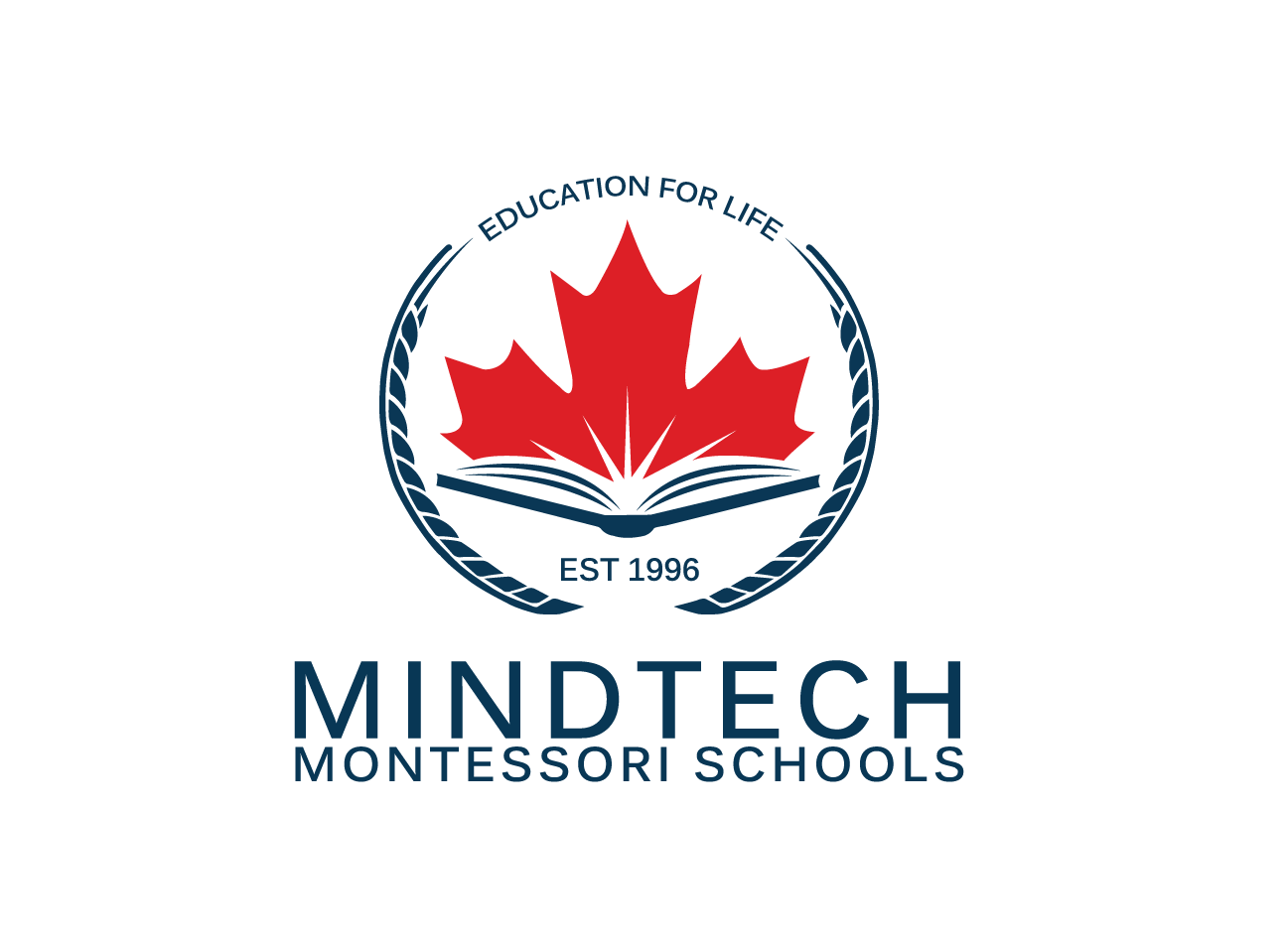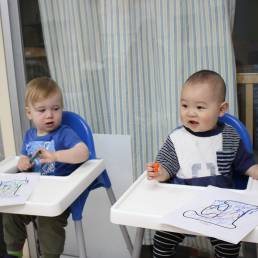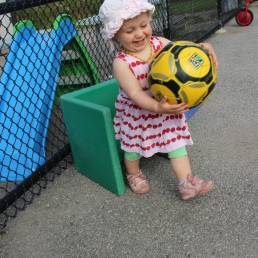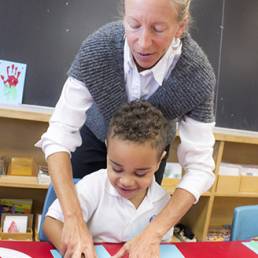ELEMENTARY MONTESSORI PROGRAM
(GRADE 1 TO 8)
What is Montessori? – A Brief History
Montessori is a philosophy with the fundamental tenet that a student learns best within a social environment which supports each individual’s unique development. The teacher, student, and environment create a learning triangle. The classroom is prepared by the teacher to encourage independence, freedom within limits, and a sense of order. The student, through individual choice, makes use of what the environment offers to develop himself, interacting with the teacher when support and/or guidance is needed.
Montessori education is a system for the education of children from birth through age 18. It is based upon principles developed by Dr. Montessori of materials, educational techniques, and observation which support the natural development of children. The teacher in a Montessori classroom serves less as an “instructor” and more as a guide and facilitator. Students are encouraged to “learn how to learn”, thus gaining independence and self-confidence. Because the method is based upon developmentally appropriate activities, the child learns through the process of education – by doing.
Multiage groupings are a hallmark of the Montessori Method: younger children learn from older students; older students reinforce their learning by teaching concepts they have already mastered. This arrangement also mirrors the real world, where individuals work and socialize with people of all ages and dispositions.
After the CASA Program, the student reaches the next phase of development, ages 6 – 9, the imagination of the student is key to learning. At this age there is an increasing awareness of the world and an interest in its wonders. The classroom can now excite the student by using this increased imagination to explore the universe. During this phase, the student is presented with “the big picture”, an overview of the interrelatedness of things. The curriculum works from the large concept to the more refined. Concepts are introduced through hands-on materials, which encourage and engage the student and assist in understanding of concepts before they are committed to memory.
As the student enters the next phase, from 9 – 12, the world is an ever-expanding place. The horizons of imagination increase and concepts may be presented and abstracted with fewer manipulative materials. The student’s hands-on activities broaden in scope and include practical application outside the classroom. Projects become more involved and diverse.
In the elementary years, the student continues to organize his thinking through work with the Montessori learning materials and an interdisciplinary curriculum as he passes from the concrete to the abstract. He begins the application of his knowledge to real-world experiences.
Psychomotricity or Sensorial activities leading to Intellectual Life
Coursework offers knowledge of the importance of sensorial education in the Montessori environment as well as skills in various techniques and in the progression from concrete to abstract with the use of the three steps in Sensorial: 1) to distinguish, 2) to specify and 3) to generalize. Coursework demonstrates the sensorial foundations of the intellectual life in the student’s development. The techniques used by the Montessori teacher to present the Montessori materials designed for demonstration of activities related to sight, touch, smell, taste, and sound follow the natural patterns of the student. Coursework focuses on the role of the adult: observe, compare, classify, judge, learn to make decisions and to draw conclusions. Coursework shows how the intellectual life of a student works from concrete to abstract.
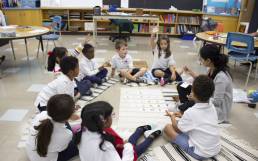
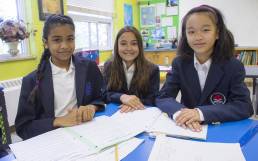
Language development is linked with sensory education, one supporting the other. Montessori viewed language as communication incorporating structure, meaning and emotion in the expression of thoughts and experiences. Students are presented materials for development of verbal and graphic language.
Math is presented to students as “materialize d abstractions” which are sensorial based concrete experiences that will eventually lead the student to abstraction. Students are taught to identify the math’s symbols and concepts by offering concrete materials first.
Cultural Subjects include but are not limited to; Geography, History and Sciences that embrace Botany and Zoology in order to help the student begin to understand his relationship to all elements and aspects of this world and appreciate his role as a citizen of the Earth. Students are provided opportunities to explore the diversity of the physical characteristics of the planet Earth through maps, land and water models, and customs of different people. Coursework examines different concepts of time, passage, length and cycle of time. An extended story of the Universe is offered. Coursework also explores natural laws of sciences in botany as well as in zoology, ways to describe and classify plants and animals, as well as studies to determine their cycle of life.
AFTER SCHOOL PROGRAMS
At MindTech learning we offer after-school programs filled with enrichment learning and opportunities.
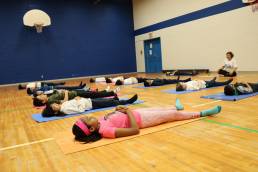
YOGA
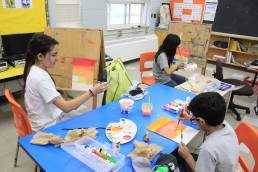
ART
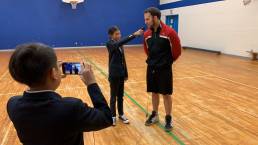
NEWS REPORTING
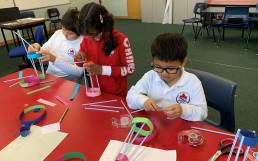
JR. ENGINEERING PROGRAM
MindTech Montessori School has provided my daughters with a higher level of education and critical extra-curricular activities such as Swimming, Skating, Skiing, Music and Art, all which are important for the child’s holistic development. I really value the small classroom sizes and quality attention, this allows the child to grow and flourish to reach their potential. Our two children both started in the infant&toddler programs, and our oldest has been there now for 8 years, therefore we have truly experienced the complete development process from the infant thru to upper elementary. MindTech has also developed my children’s character and social etiquette, time and again I see the difference and virtue of the Montessori philosophy shine beyond the academic area only. The Teachers and the staff are very loving, passionate and teach with conviction. I truly couldn’t ask for a better school for my children. Thank you for all you’ve done!Christina


